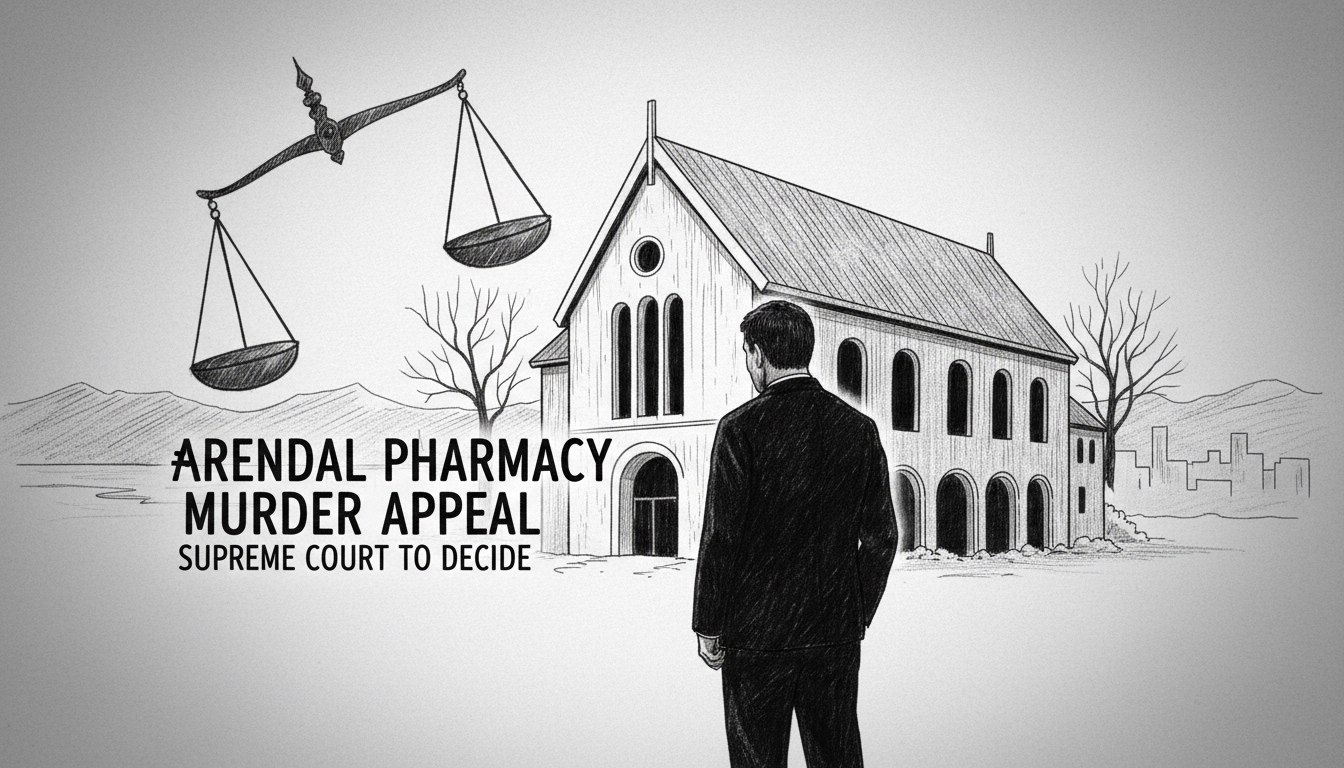A man convicted of murdering a pharmacy worker in Arendal has appealed his sentence. His defense attorney confirmed the appeal but could not disclose specific grounds. The 64-year-old defendant received compulsory mental health care in both district court and appeals court rulings.
The victim's family expressed deep distress about further delays in the legal process. They must now wait longer for a final resolution in this tragic case. A victims' assistance lawyer said the family finds the extended waiting period terrible to endure.
Miriam Cea from Grimstad was killed while working at a pharmacy in central Arendal. The attack occurred as she placed an advertising sign in the pedestrian street. Surveillance footage captured the violent incident that took place in April last year.
The assailant stabbed Cea in the neck without warning. She managed to return inside the pharmacy but died shortly afterward. Forensic evidence played a crucial role in the investigation. Police found the defendant's DNA on a knife connected to the crime.
Norwegian courts determined the man was not criminally responsible due to mental illness. This legal finding means he cannot be held accountable under normal criminal standards. Yet the defendant himself has consistently denied any guilt in the matter.
The appeal will first undergo review by the Supreme Court's appeals committee. This panel decides whether the case merits full Supreme Court consideration. The convicted man can challenge multiple aspects of his case.
His appeal may address the sentencing measure, compensation claims, or potential procedural errors. Norwegian law allows broad grounds for appeals in criminal cases. The Supreme Court accepts only a small percentage of appeal requests.
This case highlights Norway's approach to mentally ill offenders. The country emphasizes treatment over punishment for those deemed not criminally responsible. Compulsory mental health care represents the primary intervention in such instances.
Arendal residents remember the shocking nature of this daytime attack. The killing occurred in a busy shopping area, raising public safety concerns. Such violent crimes remain relatively rare in Norwegian communities.
The appeals process could extend the legal proceedings by several months. Norwegian courts typically move deliberately in serious criminal cases. All parties now await the Supreme Court's decision on whether to hear the appeal.
International readers should understand that Norway's legal system differs from many other countries. The emphasis on mental health treatment reflects broader Scandinavian approaches to justice. This case shows how Nordic countries balance public safety with rehabilitation.
What happens next depends entirely on the Supreme Court's preliminary assessment. The appeals committee operates with considerable discretion. Their decision will determine whether this legal battle continues or finally concludes.

